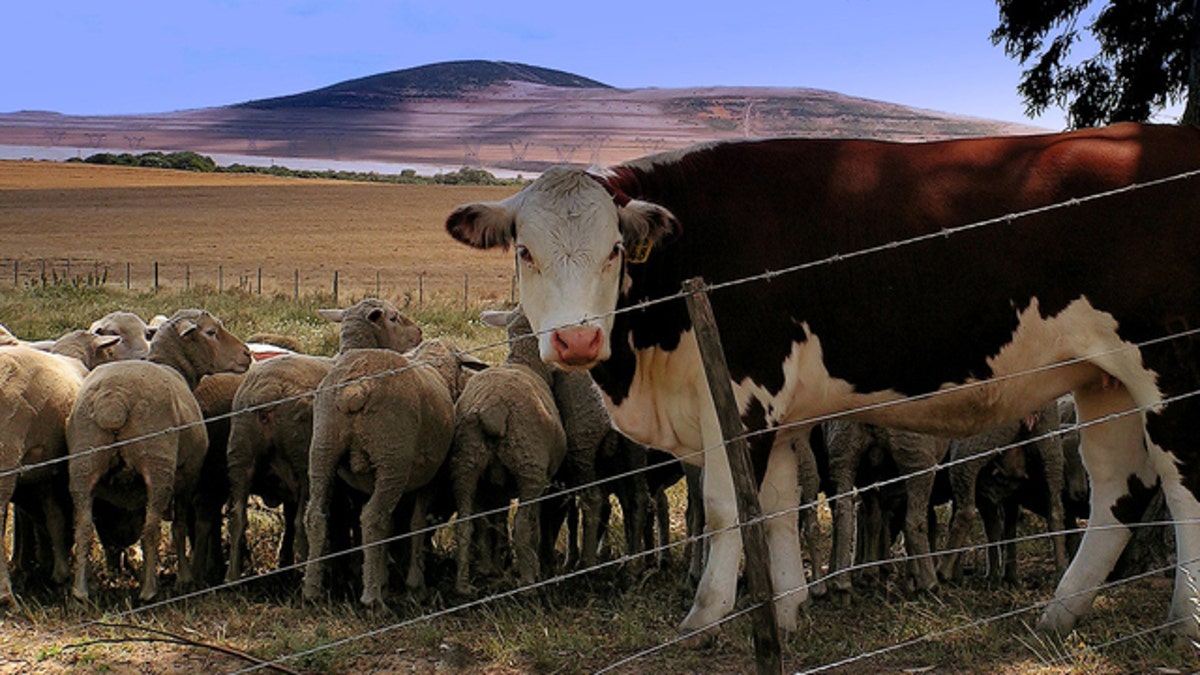
(Wikimedia)
Save the planet, eat less meat ... right? That's what the U.N. said, anyway, but one scientist has a grade A beef with that claim.
The largely reported link between global warming and cattle farming -- propagated by a United Nations report on "Livestock's Long Shadow" -- was also largely inaccurate, explains one scientist.
In a presentation before the 239th national meeting of the American Chemical Society, Dr. Frank Mitloehner of the University of California said the misleading claims emanate from a 2006 U.N. report, which said that livestock was "responsible for 18 per cent of greenhouse gas emissions," describing the figure as "a larger share than transportation."
According to Mitloehner, the claim is inaccurate because the numbers for livestock were calculated differently from the transport figures.
In the report, the livestock emissions included gases produced by growing animal feed; animals' digestive emissions; and processing meat and milk into foods. But the transportation analysis factored in only emissions from fossil fuels burned while driving, and not all other transport-lifecycle related factors.
"This lopsided analysis is a classical apples-and-oranges analogy that truly confused the issue," he said.
He argued that these claims also distract society from embracing effective solutions to global climate change. He noted that the notion is becoming deeply rooted in efforts to curb global warming, citing campaigns for "meatless Mondays" and a European campaign, called "Less Meat = Less Heat," launched late last year.
"We certainly can reduce our greenhouse gas production, but not by consuming less meat and milk,' he told the American Chemical Society meeting in San Francisco yesterday, reported The Daily Mail.
Numerous other mistakes in U.N. reports have been uncovered in recent months, following the leak of thousands of e-mails from a a climate-science group in England, a scandal labeled "Climate-gate."
First, scientists in the United Kingdom were caught covering up data that showed global warming has not occurred for the last 15 years. Then, the Copenhagen climate conference resulted in a standoff between the U.S., China, and the third world. More recently, U.N. researchers admitted that their forecasts of melting Himalayan glaciers, disappearing polar ice caps, and dwindling Amazon rainforests were based on shoddy evidence.








































